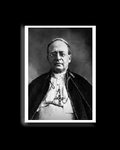by G.K. Chesterton
July 7, 1928

The essential idea of Distributism is the idea of Directness. It concerns direct ownership, direct expression, direct creation and control. We do not say we are in favour of entirely abolishing indirect action. We do say that the modern world is entirely abolishing direct action. We do not say there ought to be no such thing as a cactus or an orchid grown in Kew Gardens, at the public expense for the public instruction. We do say that there will soon be no such thing as a cabbage really grown by private enterprise for private use, unless the whole trend of modern mechanical society can be turned. We do not say there ought not to be a national granary in case of a national famine. On the contrary, we say there ought to be; and we said it long ago, when it never crossed the minds of the capitalists and social reformers and practical people that there would ever need to be. But we do say that there very soon will not be such a thing as a normal barn, expressing normal personal thrift, if we continue in our present direction; which might rather be called an indirection, seeing that it is in the direction of everything that is not direct. We say that, though it is sometimes right and necessary to control things, or try to control them, indirectly, it can never be a substitute for controlling them directly; yet it is everywhere being substituted. It is assumed to be an intrinsic improvement that a man should grow a cabbage, cart a cabbage, sell a cabbage, and then take an omnibus to another town to buy another cabbage, instead of eating the cabbage he has grown. But we say that if everything depends on exchange, everything will depend on the rulers of exchange; and if everything depends on carting, we are putting the cart before the horse and the horse above man. It is only by the permanent potentiality of growing and eating the cabbages, that we may hope that the feeding of the people, by the people, for the people, shall not perish from the earth.
At present it is perishing from the earth. At least, it is perishing from our own small but not unimportant corner of the earth. And the evil is not so much that people do adopt indirect methods, which up to a point is rational enough; but that they deny that there is any disadvantage to indirect methods, and are therefore ready everywhere to substitute them for direct ones. The general principle of Directness, like all such, extends beyond its strict application in Distributism. The other day I wrote a note in this place on one or two of the thousand things of interest to be found in Mr. Bernard Shaw’s new book on Socialism. There was no space to note very much beyond the essential issue; that though his machine of State monopoly, with its centralized property and centrifugal salaries, sounds a beautifully simple process as set forth in his own neat and candid prose, it really is a very indirect process, and has the hitch in it that all indirect processes have. It is a process by which the cabbage is whirled away on a great wheel from the man who has grown it, and returns to him after having gone the whole round of the official process of taxation, public expenditure, and public trade. Some think that the cabbage looks a little forlorn, and even slightly soiled or damaged, when it comes back out of that far-reaching machinery. Anyhow, this is certainly true about any number of other things that pass thus through modern machinery. The name of Mr. Bernard Shaw reminds me that he recently made an extremely amusing gramophone record, which largely consisted in warning his hearers that they were probably hearing a voice entirely unlike his own, and hinting pretty broadly that they probably could not work their own gramophones. Most modern people would be satisfied with saying simply that the gramophone or the wireless installation could carry a person’s voice in a most wonderful manner across the world. It does carry it in a most wonderful manner; but it does not carry the person’s voice. I took Mr. Shaw’s advice and slowed down the machine until it bore a very considerable resemblance to his voice, but it was never the same thing, or a substitute for the same thing. To come in contact with Bernard Shaw through a gramophone or an earphone is not to come in contact with Bernard Shaw. It may be better than nothing, or a harmless amusement or a legitimate by-product of civilization. But it is not meeting Mr. Shaw, as we used to meet him when he towered buoyantly above the cultured riot of the Fabian Society, and distributed inspiring wit and infernal nonsense, like a man talking to men. And that difference will always remain to make a case for the smaller commonwealth, as does the truth about the cabbage for the smaller farm. No representation or report or official machinery is the same thing as a man and a mob; and as long as people trust to mere machinery, they will forget the nature of a mob as well as of a man.
Many other examples could be taken, of course, even in Mr. Shaw’s own case. It is an excellent jest, in his own style of an exuberant perversity, to ignore the existence of man and talk through the whole volume to an imaginary woman. But I rather wonder whether the woman represented on the coloured cover is the woman he had imagined. If she has really been listening to him, she looks as if the simple truths of Socialism had been a little too much for her. That sort of thing is inevitable but instructive: the instant a thing moves from home, out of the direct influence of its maker, it accumulates a dust or accretion of slightly alien things; and by the time it reaches its remote destination, it is not the thing that was sent forth. It is so with the voice; it is so with the vote; it is so with the return in mere money for effort or expenditure; it is so in a comparatively trivial matter like the writing of a book, as compared with the printing or binding of a book. This is not, of course, a reason for not binding books or completing ordinary processes of civilization. But it is a reason for remembering always that something is lost in the process, and that everything will be lost if that is the only sort of process. It is a reason for preserving deliberately a normal life that shall be more narrow and more genuine; in which we can argue with the men we have really met and enjoy the things we have really made.























